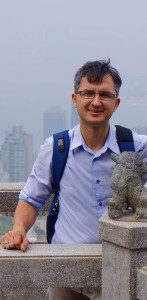Featured F1000 Specialist – April 2016
| 21 April, 2016 | Kinga Hosszu |
|

|
Nihal Okan is a postdoctoral fellow at Harvard Medical School. As F1000 Specialist he has helped organize meet-ups, invited the F1000 Outreach team to his institute, and much more. Here he tells about his experience.
If you’d like to become an F1000 Specialist yourself, and tell your own colleagues about F1000, you can sign up here.

What kind of things have you done to tell people about F1000?
As an F1000 Specialist, my goal is to spread the word and let my coworkers and colleagues know F1000 is an invaluable resource to keep up with ever growing research literature. To reach out to Boston-area researchers, we arranged a few meet ups in the past years. It was fun to meet other scientists and make new friends. I even got to see some old friends. I also invited members of the F1000 outreach team to my department. It was a good opportunity to talk about new features of F1000 and how to use them more effectively. Lastly, I must say social media has been precious to reach out to colleagues.
Do you have any tips or advice for other F1000 Specialists?
We are living in a world where new research articles are published at a mind-numbing rate. It is almost impossible to keep up with them. Personally, I always look for ways to be better organized since I spend most of my time performing the experiments. Among many tools of F1000, ones I benefited the most from are article recommendations and reviews. Reading articles recommended by scientists who are leaders in their areas gives me confidence, especially if I am trying to learn something new. Explaining my colleagues what F1000 can do for them, I think people appreciate to know they have options to choose from.
Finally, can you tell us a little bit about your work?
Lipopolysaccharides (LPS) are one of the most abundant molecules present on bacterial surfaces. LPS, historically called endotoxin, is a potent inducer of host inflammatory response. We know that not all LPS are made alike. Some LPS, particularly in certain pathogens, do not even trigger a host response.
The focus of my research is to understand the biosynthesis of these complex molecules by using Francisella as a model pathogen. In recent years, we learned quite a bit about how Francisella LPS is synthesized and what makes it less toxic. I am also exploring the possibility of using LPS mutants as live attenuated cell vaccines. In a related project, I am also working to develop methods in order to make glycoconjugate vaccines using LPS.
Kinga Hosszu is Outreach Director at F1000.

|

